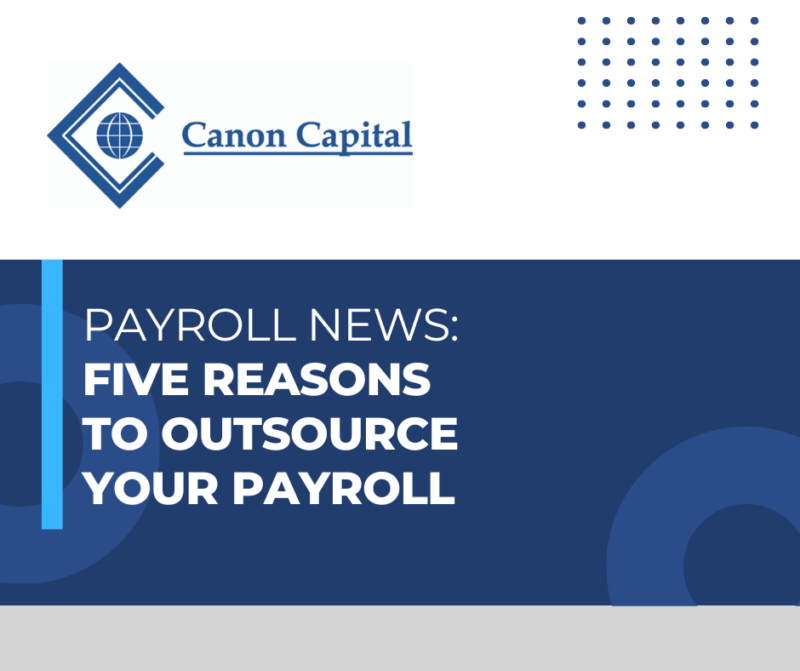The web based support form is no longer in use. Please use the green IT button on your Windows desktop or system tray to submit a support request. If you do not have the green IT button, please give us a call at 215-723-4881, extension 800, and we will be happy to assist you.
Archives: Posts
The “One Big Beautiful Bill” Is Here: Now What?
You are invited to join us for a webinar on Wednesday August 6, 2025, from 10:00 to 11:30 am via Zoom for a session with Steven Moyer, CPA/PFS, CGMA, CSEP and Brent Thompson, CPA, CMA, CGMA as we discuss what this means for you and your business. This event is free of charge, but you must register to receive the Zoom link. Please register by Friday August 1, 2025. After registering, you will receive a confirmation email containing information about joining the meeting. You DO NOT need to be a Canon Capital client to attend, so feel free to share this with business acquaintances. Register here.
Until then, this blog post outlines a summary of the key changes.
What the New “One Big Beautiful Bill Act” Means for You: A Practical Look at H.R. 1
On July 4, 2025, President Trump signed H.R. 1, the “Big Beautiful Bill Act,” (BBBA) into law. It’s being called the biggest update to the tax code since 2017, touching nearly every corner of the Internal Revenue Code, affecting individual, business, international, energy, and education tax provisions.
Prior to being signed into law, the Senate made several changes to the House-passed version, including making full expensing permanent, adjusting the phase-out of clean energy credits, and modifying the SALT deduction cap.
What does it all mean for you, your family, or your business?
Highlights for Individuals
Permanent Lower Individual Tax Rates
The reduced individual tax rates (10,12,22,24,32,35 & 37%) established by the 2017 Tax Cuts and Jobs Act (TCJA) are made permanent, preventing a scheduled reversion to higher pre-2018 rates after 2025.
Standard Deduction and Personal Exemptions
The increased standard deduction is made permanent and further increased to $23,625 for heads of household and $15,750 for singles, and $31,500 for married filing joint effective after 2024.
The suspension of personal exemptions is made permanent, except for a new $6,000 deduction for seniors (age 65+), available through 2028 and phased out at higher incomes.
Child Tax Credit
The expanded child tax credit is made permanent, increased to $2,200 per child with inflation adjustments, and includes stricter Social Security Number (SSN) requirements.
Qualified Business Income Deduction (Section 199A)
The phase-in threshold is increased to $75,000 ($150,000 joint), and a $400 minimum deduction is established for active business income, with inflation adjustments.
Estate & Gift Tax
The exemption is permanently increased to $15 million (indexed), effective for estates and gifts after 2025.
Alternative Minimum Tax (AMT)
Increased exemption and phaseout thresholds are made permanent, with modifications to inflation adjustments and phaseout rates.
Other Notable Individual Provisions
- Mortgage interest deduction: $750,000 cap made permanent; restores mortgage insurance premiums treated as interest.
- Casualty loss deduction: Limitation to federally declared disasters is made permanent and expanded to include state-declared disasters.
- Miscellaneous itemized deductions: Suspension made permanent, except for expanded educator expenses.
- Itemized deduction limitation (Pease): New formula reduces itemized deductions by 2/37 of the lesser of deductions or income above the 37% bracket threshold.
- State and local tax (SALT) deduction: Cap increased to $40,000 ($20,000 MFS) for 2025, indexed for inflation, with a phase-down for high incomes, reverting to $10,000 after 2029.
- Temporary deductions: New deductions for tips, overtime pay, and interest on loans for new U.S.-assembled vehicles (2025–2028), all phased out at higher incomes.
What Business Owners and Investors Need to Know
Full Expensing and Depreciation
- 100% bonus depreciation for qualified business property is made permanent.
- Section 179 expensing limit increased to $2.5 million, with a phaseout at $4 million, both indexed for inflation.
- Special 100% expensing for certain nonresidential real property used in qualified production activities.
Research & Development
Domestic research and experimental expenditures can be fully expensed immediately; foreign R&D remains amortized over 15 years.
Business Interest Deduction
EBITDA add-back is restored permanently, increasing allowable business interest deductions.
Advanced Manufacturing Investment Credit
Credit increased to 35% of qualified investment.
International Tax Reform
- Modifications to the foreign tax credit, including an increase in the deemed paid foreign tax credit percentage to 90%.
- Changes to sourcing rules for inventory sales.
- Modifications to FDII and GILTI deductions (GILTI renamed “net CFC tested income” and the deemed return repealed).
- Look-through rule for related CFCs made permanent; 1-month deferral election for specified foreign corporations repealed; downward attribution of stock ownership limited.
Family, Education & Community Incentives
Employer-Provided Child Care Credit
Credit increased to 40% (50% for small businesses), up to $500,000 ($600,000 for small businesses), with inflation adjustments.
Adoption and Dependent Care
- Up to $5,000 of the adoption credit is refundable, with inflation adjustments.
- Dependent care assistance exclusion limit increased to $7,500 ($3,750 MFS).
- Child and dependent care tax credit: Applicable percentage increased to 50%, phased down at higher AGI levels.
Education Incentives
- New $1,700 federal credit for individual contributions to state-approved K-12 scholarship organizations.
- 529 account qualified expenses expanded; annual limit for K-12 expenses increased to $20,000.
Community Development
- Opportunity Zones: Designations and benefits made permanent, with decennial re-designation, expanded reporting, and new rural opportunity funds.
- Low-Income Housing and New Markets Tax Credits: Both made permanent, with enhancements.
Charitable, Nonprofit & Estate Rules
Above-the-Line Charitable Deduction
Increased to $1,000 ($2,000 joint) and made permanent.
Charitable Deduction Floors
0.5% floor imposed for individuals and 1% for corporations, with carryforward rules.
Excise Tax and Compensation
- Graduated excise tax rates on private college endowments, with expanded definitions of investment income.
- Tax on excess compensation: Definition of covered employees expanded to include any employee or former employee ever covered after 2016.
Energy, Crypto & Other Miscellaneous Updates
Clean Energy Credits
Credits for clean vehicles, alternative fuel property, energy-efficient home improvements, residential clean energy, and others are terminated earlier than under prior law.
Restrictions on Foreign Ownership
Several energy credits denied to specified foreign entities and foreign-influenced entities.
Phase-Outs and Modifications
Clean fuel production credit extended through 2029 but limited to fuels from U.S., Mexico, or Canada feedstocks; negative emission rates generally prohibited except for animal manure fuels.
Other Notable Provisions
Trump Accounts
New tax-advantaged accounts for children under 18, with a $5,000 annual contribution limit and a $1,000 government-funded pilot for newborns (2025–2028).
Reporting Thresholds
1099-MISC/NEC threshold increased to $2,000, indexed for inflation; de minimis threshold for third-party network transactions restored to $20,000/200 transactions.
Litigation Financing Tax
Proposed tax on litigation financing contracts was removed from the final law.
Crypto Reporting
IRS reporting requirements for DeFi digital asset brokers repealed; IRS prohibited from issuing similar rules in the future.
Procedural and Effective Dates
Most provisions take effect for tax years beginning after December 31, 2024, or December 31, 2025, with some exceptions for specific credits, deductions, and reporting requirements.
The Bottom Line
This new law is dense and far-reaching. While some changes bring permanent certainty (like the individual tax rates and business expensing), others have ticking clocks, with phase-outs and special deductions set to expire in a few years. Taxpayers should review these changes carefully and consult their tax advisors to assess the impact on their specific circumstances and to plan accordingly for the new law’s various effective dates and transitional provisions.
Next Steps
It’s a great time to review your tax planning. Let us help you understand how these changes could impact you and create a strategy to make the most of the new rules. Contact us online or call 215-723-4881.
New Philadelphia Wage Tax Rates as of July 1, 2025
The City of Philadelphia recently lowered its Wage Tax rates, with new rates now in effect as of July 1, 2025. Here’s what employers need to know:
- 3.74% for residents (down from 3.75% in 2024)
- 3.43% for non-residents (down from 3.44% in 2024)
Any paycheck that you issue with a pay date after June 30, 2025, must have the City of Philadelphia Wage Tax withheld at the new rates for residents and nonresidents.
If you have any questions or need help making the adjustment, our team is here for you. Call us at 215-723-4881.
Blog
Three Things to Know for Q3 2025
As we move into the second half of the year, it’s a great time to revisit important deadlines, stay alert to evolving threats, and take a second look at the technologies we’re increasingly relying on. Here are three key things to keep on your radar.
Pennsylvania’s Annual Report Filing Deadline Is June 30.
If your business is registered in Pennsylvania, don’t miss the new state-mandated filing requirement. All LLCs, corporations, and other entities must submit their annual report to the Pennsylvania Department of State, a change that took effect this year.
Annual filing reports must be filed online, and there is a $7 fee (except for non-profits).
Filing deadlines are as follows:
- Corporations and non-profits: June 30, 2025
- Limited Liability Companies, domestic and foreign: September 30, 2025
- All other associations (limited partnerships, limited liability partnerships, business trusts, professional associations) domestic and foreign: December 31, 2025
Filing is required annually moving forward, and failing to do so could eventually lead to administrative dissolution. Need a refresher? Our blog breaks down everything you need to know, including what to file and where.
Payroll Fraud Is on the Rise. Here’s How to Protect Your Business.
Payroll fraud is evolving and getting more convincing. One common scam involves fraudulent requests to change direct deposit information, often made to look like they’re coming from one of your employees.
Here are a few key tips to help safeguard your payroll:
- Verify changes verbally: Call employees directly to confirm any payroll or banking updates.
- Check email addresses closely: Look for small typos or unfamiliar domains.
- Use official forms only: Require secure, approved documents for direct deposit changes.
- Avoid Green Dot cards: These are frequently used in fraudulent schemes.
- Encrypt sensitive data: Never send private info via unprotected email.
- Turn on multi-factor authentication (MFA): Preferably to a mobile phone, not an email address.
For everyday scam protection, follow these suggestions:
- Don’t open attachments or links from unknown senders.
- Never process payroll changes based on email alone.
- Be wary of urgent or unusual requests for personal or financial data.
One last tip? If you don’t already have cybersecurity insurance, now’s the time to consider it.
Don’t Believe Everything the Robot Tells You
AI tools like ChatGPT can be helpful, but they’re not foolproof. One of the biggest risks with artificial intelligence is a phenomenon known as AI hallucination, which is when a chatbot confidently presents incorrect or entirely made-up information.
A 2023 study found that AI systems hallucinate facts up to 27% of the time, and nearly half of all AI-generated content contained some kind of factual error.
Some examples are funny. like being told to use glue to adhere cheese to pizza crust. Others are far more serious, especially when users don’t realize the information is wrong, like a fabricated legal citation, invented statistics, or a phony business recommendation.
Bottom line: Just because something sounds right doesn’t mean it is right. Always double-check facts with a reliable, human-vetted source.
We’re Here to Help
Have questions about any of these topics? Whether you need help filing your annual report, want to tighten up your payroll security, or are unsure what tech tools make sense for your business, we’re here to help. Call 215-723-4881 with any questions.
Quick Links
Five Reasons to Outsource Your Payroll
Running a business is no small task. You’re juggling customers, employees, and operations while somewhere in the middle of all that is payroll. It might seem manageable at first, but it doesn’t take long before calculating hours, tracking deductions, and keeping up with tax rules starts to feel like a full-time job.
That’s why more and more small and mid-sized business owners are choosing to outsource their payroll. It’s not just about convenience. It’s about gaining peace of mind and making smarter use of your time and resources.
Here are five ways outsourcing payroll can make a big difference:
1. You Don’t Have to Worry About Tax Rules Anymore
Tax laws are always changing, and keeping up with them is practically a job in itself. Federal, state, and local requirements all have their own timelines, paperwork, and penalties for getting it wrong.
When you work with a professional payroll provider like our team here at Canon Capital, we handle all of that for you. You get the confidence of knowing everything is filed correctly and on time without the stress of trying to keep track of every regulation yourself.
2. We Handle the Local Taxes You Might Not Even Know About
If you operate in Pennsylvania, you know local earned income tax (EIT) and local services tax (LST) can be confusing, especially if you’re dealing with multiple municipalities or your employees live in different places.
We take care of all the local tax filings for you. That means no digging through forms or Googling which office needs what. We’ve got it covered, so you can focus on running your business.
3. You’ll Free Up Hours Every Month
Payroll isn’t just “cutting checks.” It’s entering data, double-checking math, managing deductions, generating reports, and filing returns over and over again. If you’re handling that in-house, you’re spending valuable time on something that doesn’t generate revenue.
Outsourcing payroll gives you those hours back. More time for customers, more time for strategy, more time to actually grow your business.
4. It Reduces Risk and Helps You Avoid Costly Mistakes
Payroll errors aren’t just annoying, they can get expensive. A small misstep in withholding or a missed deadline can lead to fines, frustrated employees, and time you can’t afford to waste fixing it.
Our reliable systems and careful review processes keep things accurate from the start. We catch the little things so they don’t turn into big problems.
5. You Get a Team Who Knows Payroll Inside and Out
As your business grows, your payroll gets more complex. New hires, changes in tax laws, and expanded benefits, it all adds up fast.
That’s why working with a payroll partner—not just a processor—matters. Our team is here when you need us, ready to help with questions, offer guidance, and adapt to your business as it evolves. You’re not just a number in a system. We know your name and we’re here to help.
Wondering If It’s Time to Make the Switch?
If payroll is taking up more time than it should, it might be time to talk. Let’s take payroll off your plate.
Contact us online or call 215-723-4881 to learn more about how we can help your business run smoother.
Home Page
Accounting / CPA
We prioritize understanding your business, emphasizing planning and communication to best serve your financial needs.
Payroll
Our full-service payroll department creates a plan unique to your business, saving you time, money, and stress.
Wealth Management
Learn more about wealth management, retirement planning, and 401(k) plan services here
Technologies
Our mission is to enhance your quality of life and the health of your business by delivering proactive and effective technology services.
Newsletters
Sign up for our newsletter:
{rsform 3}
Newsletter Archive:
May 2012 Newsletter
March 2012 Newsletter
April 2012 Newsletter
August 2011 Newsletter
November 2011 Newsletter
January 2012 Newsletter
February 2012 Newsletter
September 2011 Newsletter
October 2011 Newsletter
Is It Time to Rethink Your Cybersecurity? Here’s Why Zero Trust Matters
When it comes to cybersecurity, the old way of doing things—including trusting anything inside your network—just doesn’t cut it anymore. Threats are smarter, faster, and always changing. That’s why more businesses are moving to a Zero Trust approach: trust nothing until it’s verified.
If you’re thinking about tightening up your security, here are a few key things to keep in mind:
Always verify identity.
Every time someone logs in, you need to know for sure it’s really them. Strong multi-factor authentication (MFA) isn’t a nice-to-have anymore—it’s a must.
Check the devices too.
It’s not just about the user. Every device trying to connect should meet your security standards. If a device isn’t up to date or secure, it’s a risk.
Limit access.
Only give people access to what they need to do their jobs. Nothing more. It’s one of the easiest ways to keep a breach from spreading.
Keep an eye on everything.
Zero Trust isn’t a set-it-and-forget-it model. You have to keep monitoring users, devices, and activity to catch anything unusual early.
Protect your data—everywhere.
Whether it’s sitting in storage, moving across your network, or being accessed remotely, your data should always be encrypted and secure.
Zero Trust sounds complicated, but it doesn’t have to be. If you’re not sure where to start, we can help. Let’s chat about what makes sense for your business—without the overwhelm.
Contact us today to learn how we can help. Call 267.381.2025 or reach us online.










